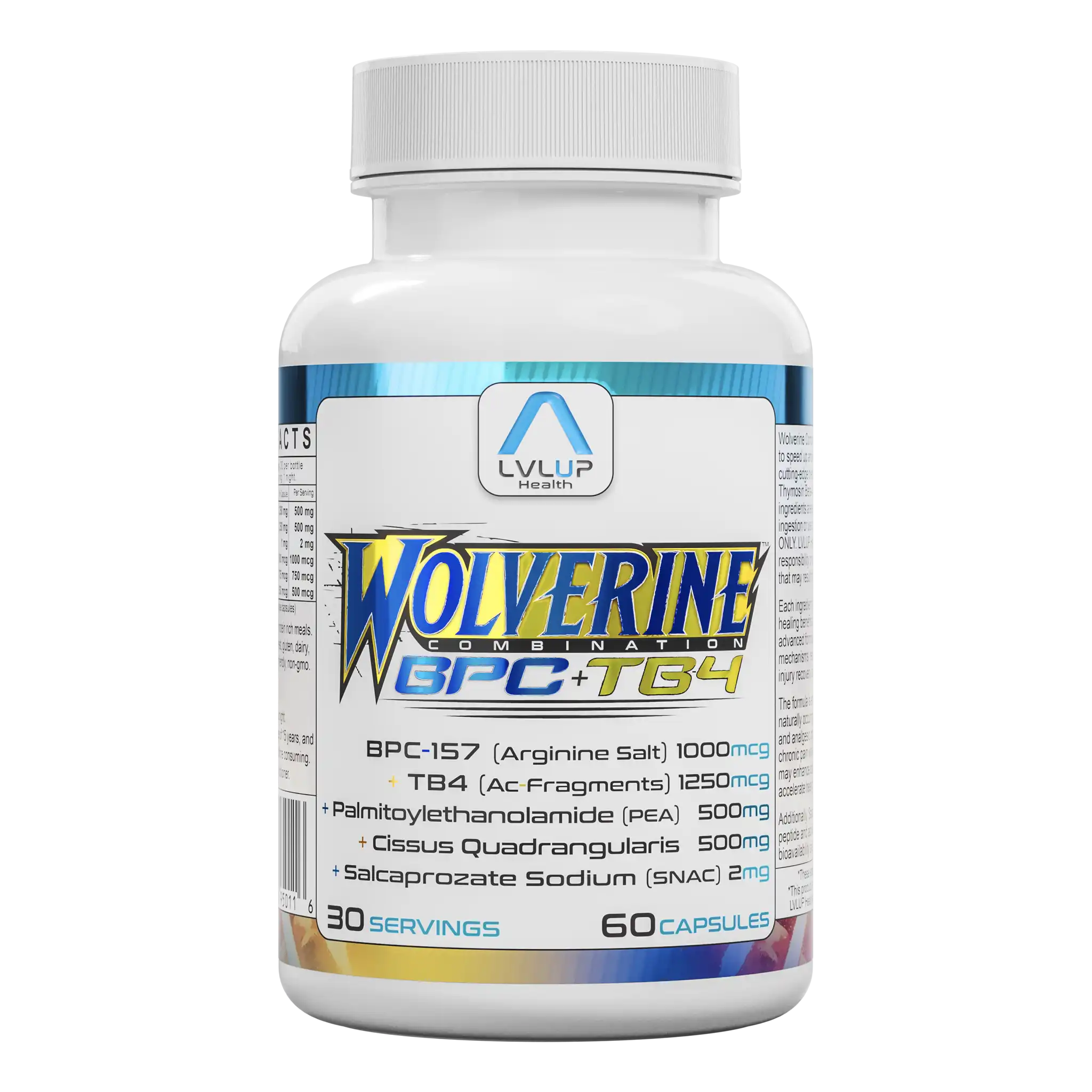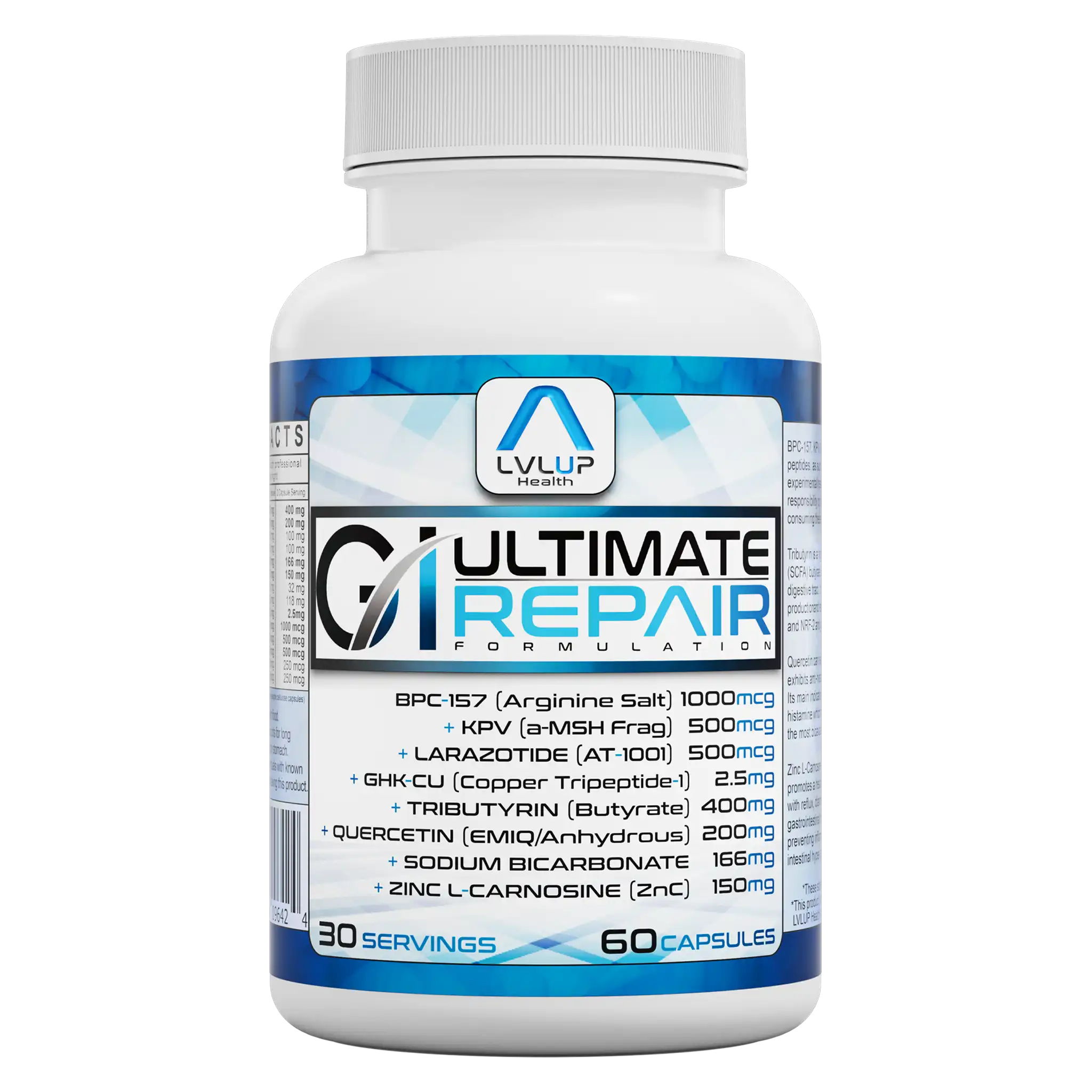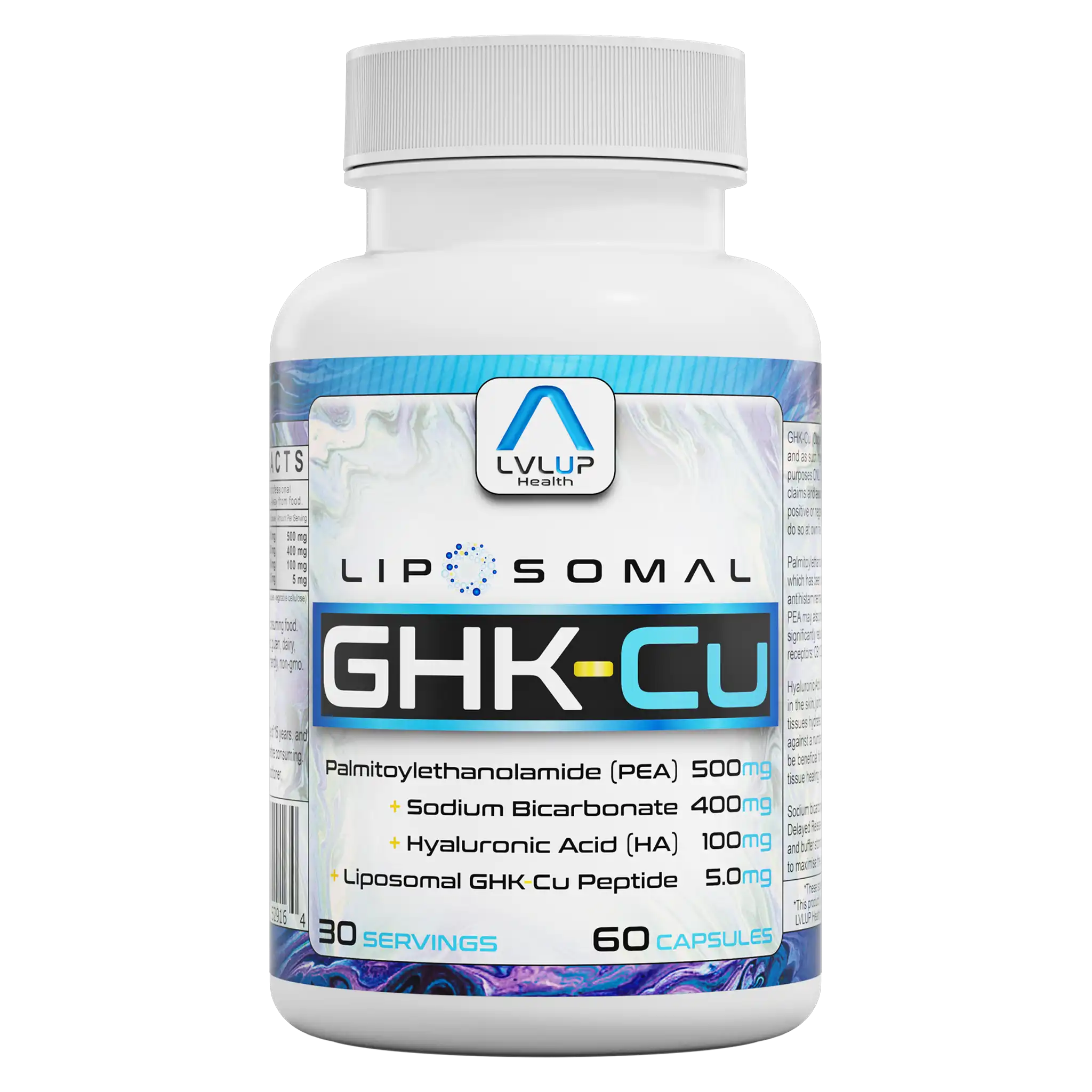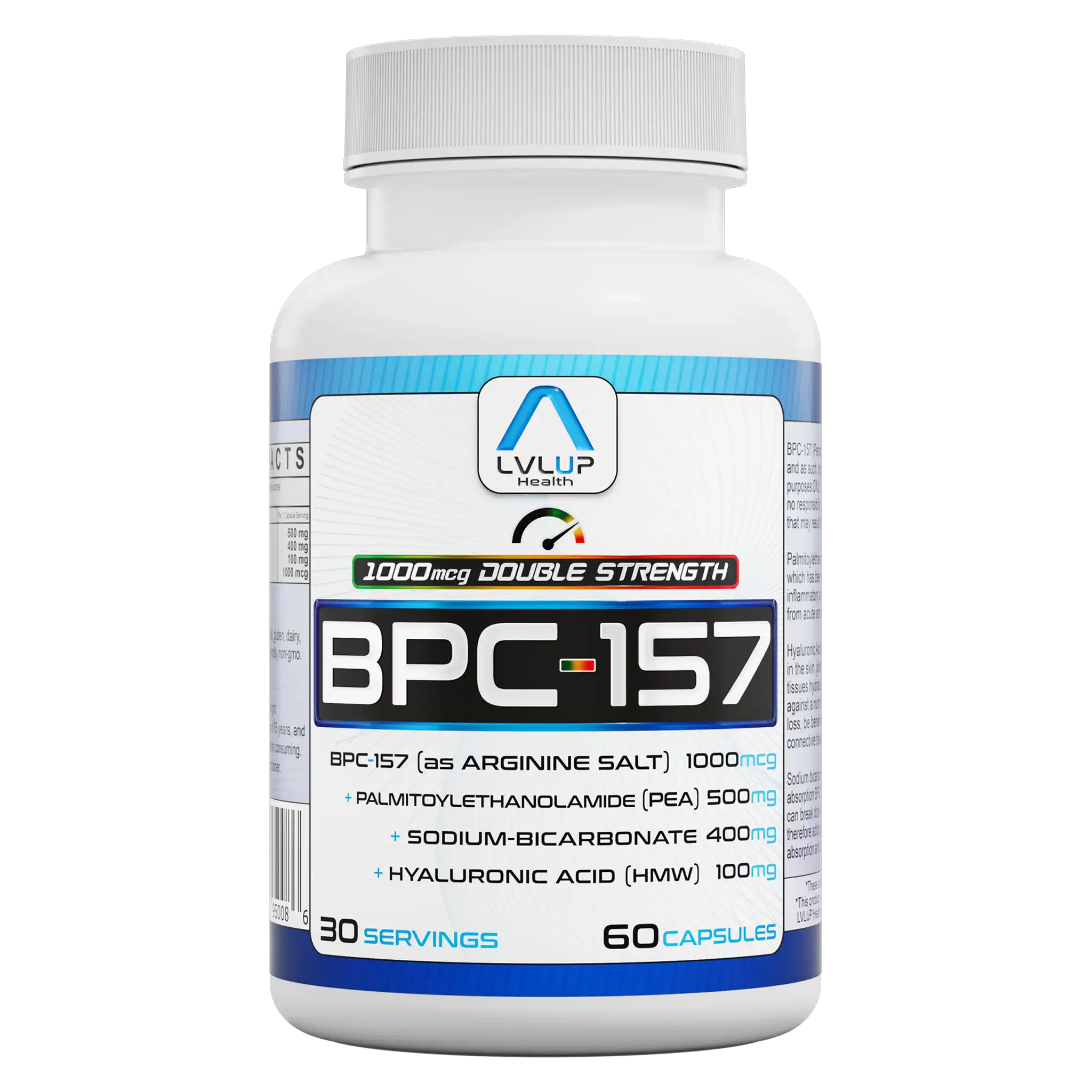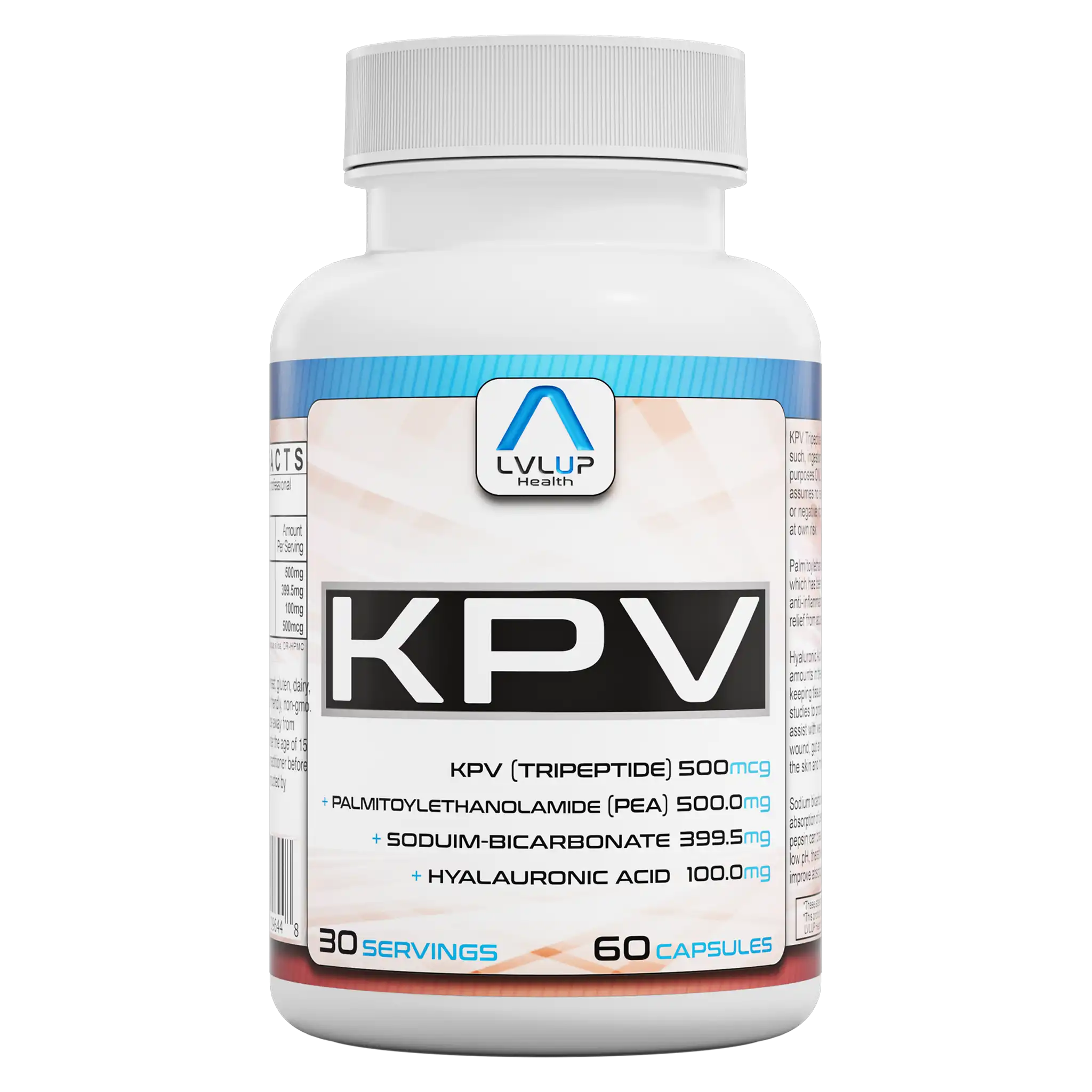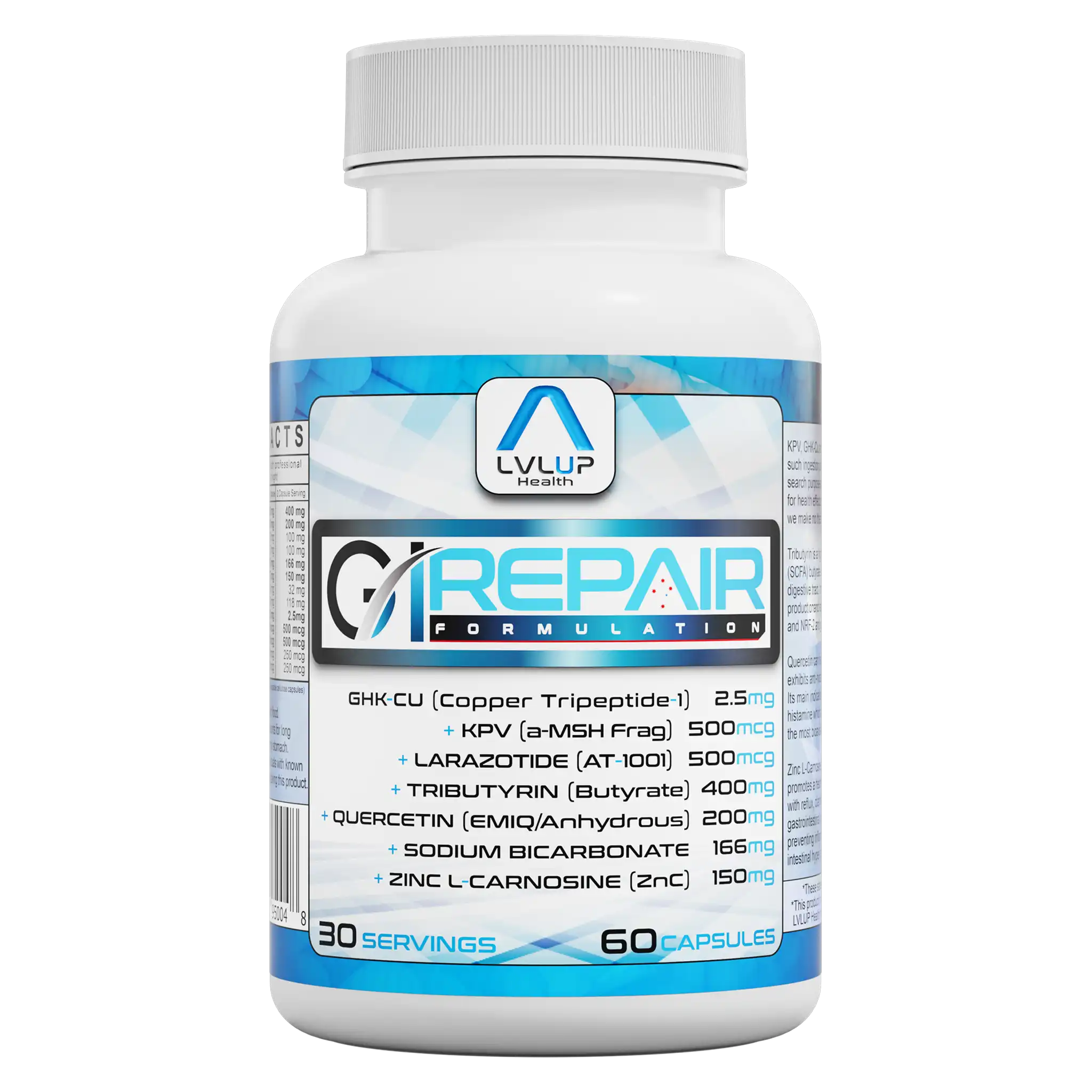KPV
About KPV
How KPV Works
KPV stands out in the supplement world for its precision. It can traverse through the gut when taken orally, thanks to its small size and resistance to breakdown, ensuring high bioavailability. Inside the body, KPV can suppress inflammatory signals in cells, blocking pathways like NF-kB and reducing cytokines such as TNF-α and IL-6, which are responsible for tissue inflammation.
Targeted Immune Modulation
Unlike other treatments that might dampen your entire immune system, KPV finds a balance. It calms overactive immune responses without disabling your body’s natural ability to fight real threats like bacteria or viruses. This makes it appealing for those with autoimmune issues or chronic digestive problems such as IBS or IBD.
Gut and Skin Benefits
KPV aids in maintaining a tight gut barrier by supporting proteins like occludin and claudins. These benefits extend beyond digestion. Athletes and dermatology researchers have shown interest in KPV for its role in post-workout recovery and skin repair. It helps reduce redness, enhance cell migration for faster skin repair, and even exhibits antimicrobial activity against bacteria like Staph aureus.
Emerging Potential
Research is exploring KPV’s potential anti-cancer effects, observing slowed tumor growth in some studies by disrupting signals tumors use to survive. Although human studies are still ongoing, this remains an exciting area of research.
Usage and Combinations
With high absorption, KPV is a practical addition to gut-support formulas and specialized immune-balancing blends. It’s often paired with glutamine for digestive support or zinc carnosine for mucosal health, expanding its use in tissue-healing protocols.
Formulated With
Detailed Information
Immunomodulatory Mechanism
KPV (Lys-Pro-Val; residues 11-13 of α-MSH) is a tripeptide known for its local immunomodulatory properties. It inhibits NF-κB translocation to the nucleus in epithelial cells and macrophages exposed to inflammatory stimuli like LPS, thereby restricting the transcription of pro-inflammatory cytokines such as TNF-α and IL-6. This selective action avoids global immunosuppression.
Bioavailability and Absorption
Orally administered KPV shows high bioavailability due to its resistance to protease activity, aided by its N-terminal lysine. This resistance allows it to be absorbed efficiently with minimal hepatic first-pass effect, as shown in rodent models and preliminary human studies.
Clinical Applications in Gastrointestinal Disorders
In gastrointestinal disorders like IBD, KPV helps maintain intestinal barrier integrity by preserving tight junction proteins such as occludin and claudins. It reduces myeloperoxidase activity and TLR4-mediated apoptosis under stressors like DSS or bacterial endotoxins, and alleviates symptoms in IBS and infectious colonic inflammation through mucosal cytokine modulation.
Dermatological and Oncological Insights
Topically or systemically applied, KPV accelerates wound re-epithelialization by enhancing keratinocyte migration and proliferation. It also shows antimicrobial action against S. aureus. Emerging data suggest its ability to inhibit tumorigenesis via inflammation reduction without direct cytotoxicity.
